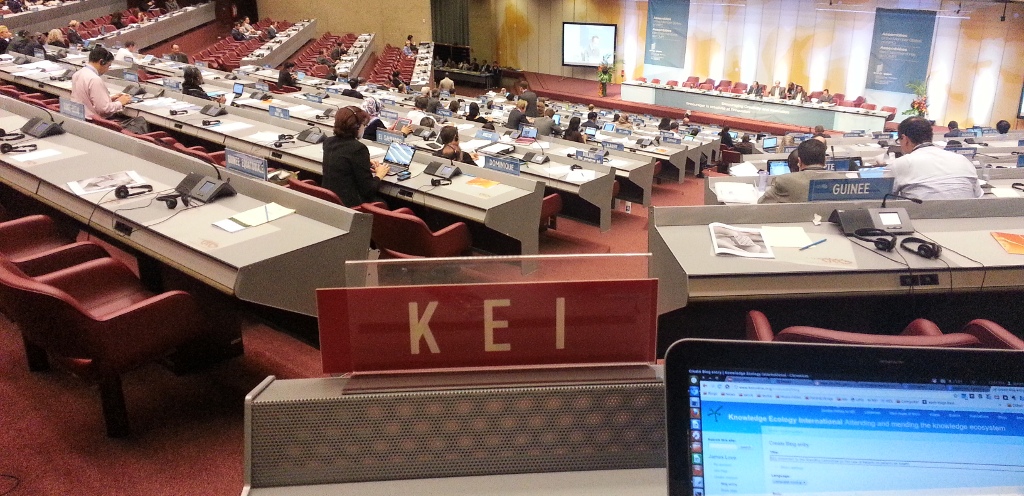
It is late Friday, at a handful of delegates at the WIPO General Assemblies are here for the debate patents and health. The European Union and the United States both want to block further meetings of the Standing Committee on the Law of Patents, until they can agree on a new work program. In the areas of patents and health, the USA and the Africa Group have very different proposals. The Obama Administration’s proposal is considered shockingly bad by public health groups, among other things it wants the Committee to focus only on non-patent barriers to access to medicine, and to effectively promote tougher patent rights in developing countries. The Obama administration made a blunt statement that it opposed work on patent limitations and exceptions, or other things that would weaken patent rights.
Two NGOs spoke on this item, MSF and KEI. The MSF statement was a detailed and well received discussion of the impact of poor quality patents on patients in developing countries, and the efforts to revoke bad quality patents. MSF talked about its new database on this topic.
The following are notes from KEI comments, as regards the WIPO Standing Committee on the Law of Patents work on patents on health
KEI would like to see that Standing Committee on Patents continue its work on patents and health, and not stop working on this issue until they accomplish something constructive as regards expanding access to patented medical inventions.
KEI supports the work program on access to medicine put forth by the Africa Group. We reject the proposal by the USPTO, which KEI and many other health and development groups find appalling.
I also wanted to mention one additional area where the SCP could be consider in its work program. That concerns the practical challenges facing countries in evaluating weak patent claims, in an environment where inappropriate patents extend product monopolies. It would be good to have a better understanding of the costs of litigating patent weak claims, and also the capacity of persons affected by patents in various countries to undertake such litigation, given the costs and the necessary expertise.
The SCP could have a narrow treaty or even a model law drafted to make it easier to revoke patents in one country when the same patent claims have been rejected in another jurisdiction. This would create greater incentives and benefits for public health groups, including UN agencies or the Global Fund to challenge weak patent claims, because the success in one jurisdiction could potentially be leveraged to revoke patents in other countries. This is a serious problem, and some type of work sharing as regards patent revocation may be useful.
Another area related to the patents work is the growing number of sui generis intellectual property regimes on medicines, such as test data exclusivity, orphan drug exclusivity and other sui generis regimes that grant exclusive rights, often without even the possibility of a compulsory license. This SCP could collect state practice as regards compulsory licensing for these sui generis regimes, in cases of abuses, public interest or government use.